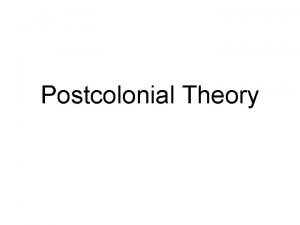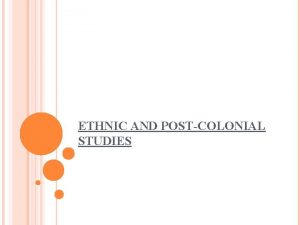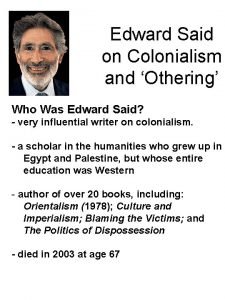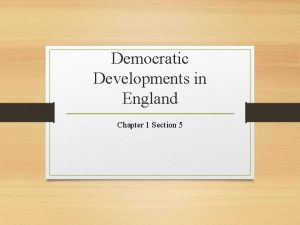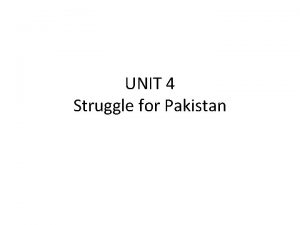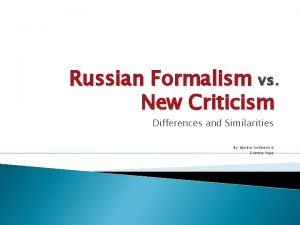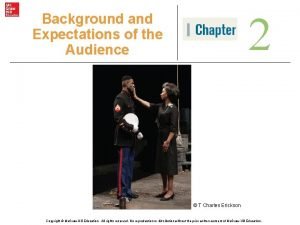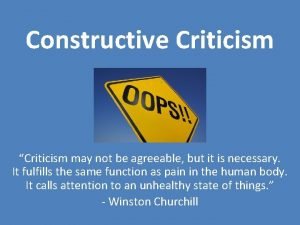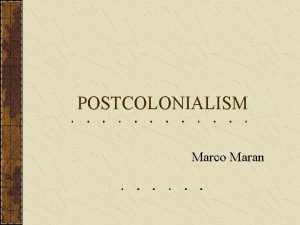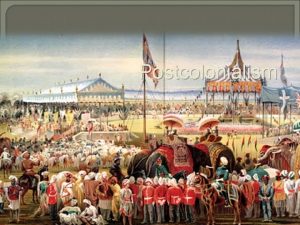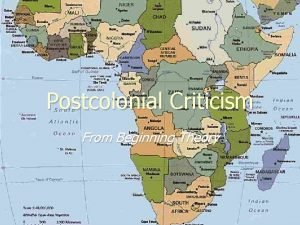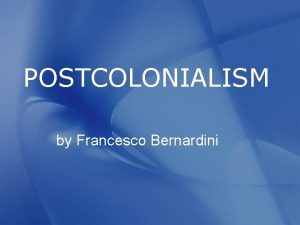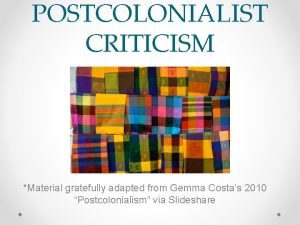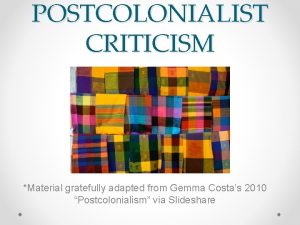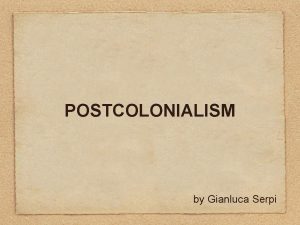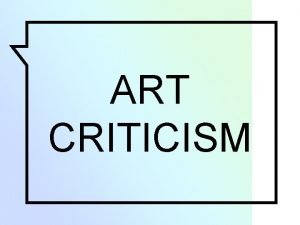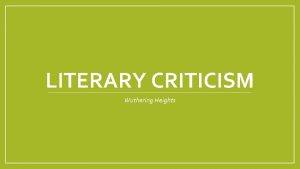POSTCOLONIALIST CRITICISM The Great Othering POSTCOLONIALISM v Emerged












- Slides: 12

POSTCOLONIALIST CRITICISM The Great Othering

POSTCOLONIALISM v Emerged in the 1990’s v Undermines universalist claims v Universal claims disregard difference Regional National Cultural Social v White Eurocentric norms have been historically privileged

POST… WHAT? Colonialism: v. An extension of a nation’s rule over territory beyond its borders va population that is subjected to the political domination of another population v. Militaristic ( the physical conquest and occupation of territories) v. Civilizational (the conquest and occupation of minds, selves, and cultures)

TO WRITE THE HISTORY IS TO OWN THE NARRATIVE v. Most classical literature comes from the voices of DWG’s (dead white guys), and that means it’s usually written from the perspective of colonialism. v. It is a narrative in which the “West” attempts systematically to cancel or negate the cultural difference and value of the “non. West” (Leela Gandhi, 1998)

POSTCOLONIAL LITERARY CRITICISM v. Acknowledges an evolution in academia to consider the untold stories of the oppressed. v. Postcolonialism literary lens The focus of this lens is upon exposing the injustices suffered by oppressed groups and the contrast between their worldviews/the oppressors’.

TOPICS AND TERMS FOR THE POSTCOLONIAL SCHOLAR Eurocentrism Racism Hegemony Orientalism Counter-narrative


GROUND-BREAKING WORK v Edward Said’s Orientalism (1978) v The “Orient” (the East) is seen as “other”; inferior to the “Occident” (the West) v The East is portrayed as projection of negative aspects • cruelty, sensuality, decadence, laziness, etc. v Yet the East is also portrayed as exotic, mystical, seductive

ORIENTALISM IN LITERATURE Characterizations are filled with anonymous masses of people (not individuals) v v Characters’ actions determined by instinct (lust, terror, fury, etc. ) vs. logic v Characters’ reactions are determined by racial considerations rather than individual circumstance

WHAT POSTCOLONIAL CRITICS DO v Reject claims of universalism v Examine representation of other cultures v Show literature is silent on matters of imperialism and colonialism v Assert that marginality, plurality and ‘Otherness’ are sources of energy and potential change

POSTCOLONIALIST CRITICISM: THE LITERARY LENS Examine colonizer/colonized relationship in literature v Is the work pro/anti colonialist? Why? v Does the text reinforce or resist colonialist ideology? v. What person(s) or groups does the work identify as "other" or stranger? How are such persons/groups described and treated? Analyze types of oppression v What tools do the colonizers use to demean or oppress the colonized? v What psychological aftermath are the colonized people left with? v What does the text reveal about the politics and/or psychology of anticolonialist resistance?

SCHOLARLY CONFRONTATION v Don’t be afraid to be critical of an author’s portrayal of race. If it makes you uncomfortable, there’s probably something wrong with it. v Do not get sucked in to “positive stereotyping. ” Casting the colonized person as a purely innocent, angelic culture to be pitied is almost as bad as demonizing. That’s not acknowledging complexity. v If you are white, this legacy can be difficult to accept. But it’s the history you inherited, so learn to deal with it now. v Any text, even one that doesn’t seem to be “about” race/culture, can be examined from a postcolonial lens.
 Post colonial literature
Post colonial literature Postcolonialism is
Postcolonialism is Ethnic studies and postcolonial criticism
Ethnic studies and postcolonial criticism Postcolonialism definition
Postcolonialism definition Edward said othering
Edward said othering Democratic developments in england
Democratic developments in england Who emerged as patrons in the baroque period?
Who emerged as patrons in the baroque period? Urdu hindi controversy started in the year
Urdu hindi controversy started in the year Difference between formalism and russian formalism
Difference between formalism and russian formalism Descriptive criticism vs prescriptive criticism
Descriptive criticism vs prescriptive criticism Biblical criticism is not a form of historical criticism.
Biblical criticism is not a form of historical criticism. What is constructive criticism
What is constructive criticism 101012 bằng
101012 bằng

